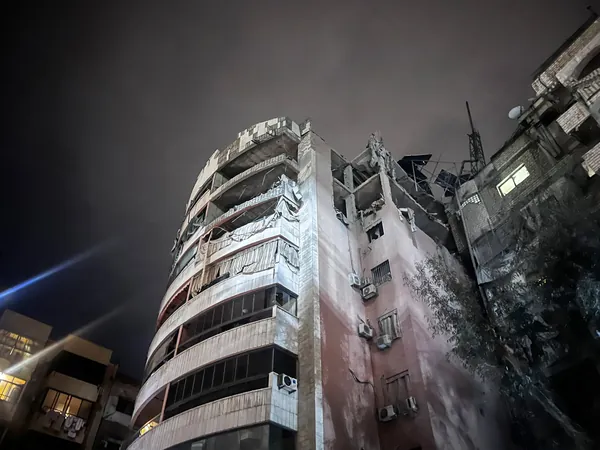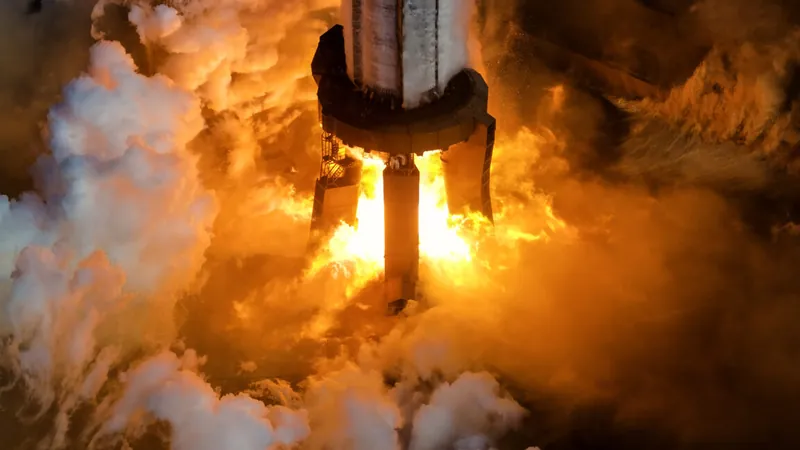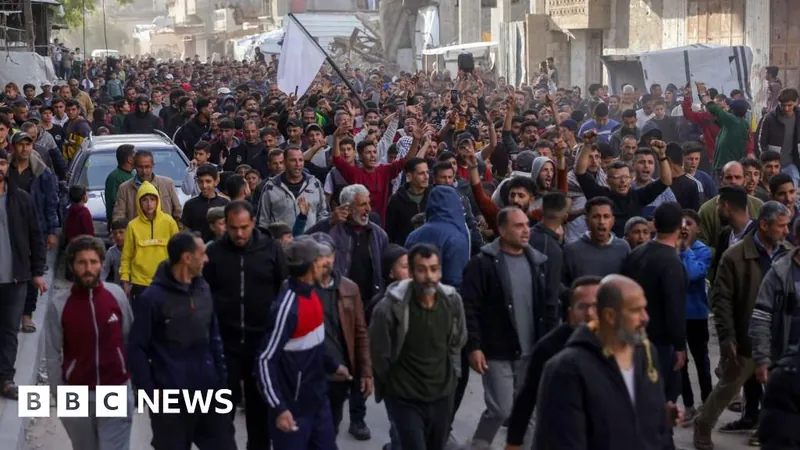
Israel Strikes Beirut Again: Fragile Truce with Hezbollah Hanging by a Thread!
2025-04-01
Author: Ming
In a shocking escalation of violence, Israel's military launched a second airstrike on Beirut, Lebanon's capital, in less than a week, resulting in the deaths of at least four individuals, including a woman. This latest offensive, which occurred in the early hours of Tuesday in the southern suburb of Dahiyeh, poses a grave threat to the ceasefire established with Hezbollah just four months earlier.
Eyewitness accounts describe the attack as sudden and without warning, sending shockwaves through the already tense atmosphere in Lebanon. Seven others were wounded, as reported by the Lebanese Ministry of Health. The Israeli military justified their actions by claiming to target a Hezbollah member alleged to be collaborating with Hamas to orchestrate an imminent assault on Israeli civilians, but notably, no evidence was provided to substantiate these claims.
Lebanon's President Joseph Aoun did not hold back in his condemnation of the airstrike, labeling it a "dangerous warning" of Israel's aggressive intentions. He emphasized the need for Lebanon to seek support from its allies worldwide in defending its sovereignty against the persistent aggressions of Israel.
Videos captured in the aftermath of the bombing depict the extent of the damage, with smoke rising ominously over Dahiyeh and destruction evident to a residential building, littered with debris and shattered vehicles below.
Al Jazeera's correspondent in Beirut, Resul Serdar, reported ongoing rescue operations in the area and highlighted a lack of information regarding the identities of those affected by the strike. Serdar pointed out the anxiety rippling through the Lebanese government following this attack, particularly as it followed just three days after Israel's previous bombing of Beirut—the first since the ceasefire agreement brokered by France and the United States last November.
This ceasefire was intended to halt a year-long conflict and mandated Israel to pull back its ground troops from southern Lebanon while Hezbollah also retreated beyond the Litani River and the UN-designated border, known as the Blue Line. However, tensions remain high, with both sides accusing each other of violating the agreements. Israel's military operations have not ceased, often justifying attacks as necessary responses to perceived threats from Hezbollah.
The situation in Beirut worsened as the military previously cited rocket fire from Lebanon as justification for their attack on Friday, an allegation Hezbollah vehemently denied. The contrast between the two strikes—one claimed as retaliation and the other seemingly unprovoked—has left residents in a state of fear and uncertainty.
Hezbollah's leader, Sheikh Naim Qassem, issued a stern warning over the weekend, indicating that if Israel continues its hostilities and the Lebanese government fails to intervene, the group may be pushed to consider alternative responses. This statement underscores concerns that the violence may reignite the long-standing conflict between Lebanon and Israel.
Furthermore, analysts have pointed fingers at U.S. policies as a key contributor to Israel's ongoing military actions. Phyllis Bennis from the Institute for Policy Studies argued that the U.S. government's unwavering support has emboldened Israel’s aggressive stance not only in Lebanon but also in other regions like Syria and Palestine.
"What we are witnessing is an extension of Israel's aggressive actions in Gaza being mirrored in Lebanon, with a stark disregard for previous agreements," Bennis stated from Washington, D.C. She mentioned that both the French and U.S. authorities, acting as guarantors of the ceasefire deal, have failed to take decisive measures against Israel's continued aggression.
As the world watches this fragile ceasefire unravel, the question remains: How long before tensions erupt into full-scale conflict once more? Beirut remains on edge, with its residents acutely aware that any misstep could spell disaster for the already precarious peace.



 Brasil (PT)
Brasil (PT)
 Canada (EN)
Canada (EN)
 Chile (ES)
Chile (ES)
 Česko (CS)
Česko (CS)
 대한민국 (KO)
대한민국 (KO)
 España (ES)
España (ES)
 France (FR)
France (FR)
 Hong Kong (EN)
Hong Kong (EN)
 Italia (IT)
Italia (IT)
 日本 (JA)
日本 (JA)
 Magyarország (HU)
Magyarország (HU)
 Norge (NO)
Norge (NO)
 Polska (PL)
Polska (PL)
 Schweiz (DE)
Schweiz (DE)
 Singapore (EN)
Singapore (EN)
 Sverige (SV)
Sverige (SV)
 Suomi (FI)
Suomi (FI)
 Türkiye (TR)
Türkiye (TR)
 الإمارات العربية المتحدة (AR)
الإمارات العربية المتحدة (AR)